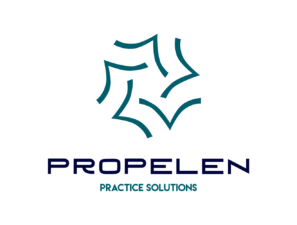Introduction
The introduction of artificial intelligence (AI) into healthcare is transformative, promising enhanced patient outcomes, improved efficiency, and innovative solutions to longstanding problems. However, implementing AI in healthcare organizations is not an end goal, but an ongoing journey requiring careful planning and execution.
Understanding AI: Demystifying the Technology
For many healthcare professionals, AI might still feel like an abstract, distant concept. The first step in preparing for AI is to understand what it is, its potential applications in healthcare, and its limitations. There is a need for educational initiatives to help doctors, nurses, administrators, and other healthcare workers understand AI’s role in healthcare. These initiatives can range from in-depth workshops to simple informational sessions and can also include real-life case studies where AI has transformed healthcare delivery. The aim is to create an environment where AI is viewed not as a threat, but as a valuable ally that can enhance patient care and operational efficiency.
Creating an AI Strategy: Guiding the Transformation

Developing an AI strategy is a vital step in the journey towards AI integration. The strategy should clearly define what the organization hopes to achieve with AI, identify the resources required, and outline a step-by-step plan to meet these goals. The strategy should consider all facets of AI implementation, including technical requirements, staff training, data privacy, and ethical considerations.
A crucial aspect of this strategy is ensuring it aligns with the organization’s broader goals and values. The implementation of AI should not compromise the quality of patient care or patient privacy but should enhance the overall healthcare delivery process.
Investing in Training and Support: Building Confidence in AI
Successful AI implementation in healthcare hinges on the end-users’ confidence and comfort with the technology. Training programs can help familiarize staff with AI tools, educating them on how to use these tools in their daily tasks and how to interpret the insights generated. The training should also address any concerns or fears staff might have about AI, reassuring them that AI is a tool designed to support their roles, not replace them.
Additionally, there should be ongoing technical support to address any issues or challenges that might arise during the AI implementation process. This support can be provided in-house or through the AI solution provider, ensuring that any technical glitches or issues are promptly addressed to minimize disruption to healthcare services.
Involving Staff in the AI Journey: Encouraging Ownership
AI implementation should not be a top-down process but should involve all levels of staff. Involving staff in the decision-making process can encourage a sense of ownership and commitment to the AI initiative. Staff can provide valuable insights into their daily challenges and how AI can help address these challenges. Their involvement can also help mitigate any fears or resistance to the new technology, fostering a more positive and accepting attitude towards AI.
Assessing and Adapting: The Journey Continues
Finally, it’s important to remember that AI integration is not a one-time task but an ongoing process. As AI technologies evolve and new applications emerge, healthcare organizations will need to assess their AI strategy, make necessary adjustments, and adapt to the changing landscape. This adaptability will ensure that the organization continues to harness the full potential of AI, driving improved patient care, operational efficiency, and overall growth.
Closing Thoughts
Preparing a healthcare organization for AI is a complex but rewarding journey. By fostering an understanding of AI, developing a strategic plan, investing in training and support, involving staff in the process, and continually assessing and adapting, healthcare organizations can successfully navigate this journey. In doing so, they’ll be better positioned to leverage the power of AI, transforming healthcare delivery for the better.
At Propelen, we are committed to helping healthcare organizations navigate this journey, offering expert guidance, tailored solutions, and ongoing support. We understand that every healthcare organization is unique, and we strive to provide AI solutions that meet your unique needs and circumstances. We invite you to reach out to us today!
In the upcoming blogs, we’ll delve deeper into AI’s role in healthcare, exploring areas such as patient care, healthcare operations, and new healthcare roles created due to AI. Stay tuned!
This is the third in a series of blog posts about the emergence of Artificial Intelligence in healthcare, written by Propelen LLC CEO Sokhona Sillah. See all articles in this series: ArtificlaI Intelligence and Healthcare
Sokhona Sillah, MHA
- Sokhona Sillah, MHAhttps://propelen.com/author/sokhonasillah/
- Sokhona Sillah, MHAhttps://propelen.com/author/sokhonasillah/
- Sokhona Sillah, MHAhttps://propelen.com/author/sokhonasillah/
- Sokhona Sillah, MHAhttps://propelen.com/author/sokhonasillah/


